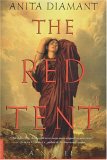Summary | Excerpt | Reading Guide | Reviews | Readalikes | Genres & Themes | Author Bio

I can still feel how my mothers loved me. I have cherished their love always. It sustained me. It kept me alive. Even after I left them, and even now, so long after their deaths, I am comforted by their memory.
I carried my mothers' tales into the next generation, but the stories of my life were forbidden to me, and that silence nearly killed the heart in me. I did not die but lived long enough for other stories to fill up my days and nights. I watched babies open their eyes upon a new world. I found cause for laughter and gratitude. I was loved.
And now you come to me - women with hands and feet as soft as a queen's, with more cooking pots than you need, so safe in child-bed and so free with your tongues. You come hungry for the story that was lost. You crave words to fill the great silence that swallowed me, and my mothers, and my grandmothers before them.
I wish I had more to tell of my grandmothers. It is terrible how much has been forgotten, which is why, I suppose, remembering seems a holy thing.
I am so grateful that you have come. I will pour out everything inside me so you may leave this table satisfied and fortified. Blessings on your eyes. Blessings on your children. Blessings on the ground beneath you. My heart is a ladle of sweet water, brimming over.
Selah.
Part One: My Mothers' Stories
Chapter One
Their stories began with the day that my father appeared. Rachel came running into camp, knees flying, bellowing like a calf separated from. its mother. But before anyone could scold her for acting like a wild boy, she launched into a breathless yarn about a stranger at the well, her words spilling out like water into sand.
A wild man without sandals. Matted hair. Dirty face. He kissed her on the mouth, a cousin, son of their aunt, who had watered sheep and goats for her and told off the ruffians at the well.
"What are you babbling?" demanded her father, Laban. "Who is come to the well? Who attends him? How many bags does he carry?"
"He is going to marry me," said Rachel matter-of-factly, once she had caught her breath. "He says I am for him and that he would marry me tomorrow, if he could. He's coming to ask you."
Leah scowled at this announcement. "Marry you?" she said, crossing her arms and throwing back her shoulders. "You won't be marriageable for another year," said the older girl, who, though only a few years older than Rachel, already acted as head woman of her father's small holdings. The fourteen-year-old mistress of Laban's house liked to take a haughty, maternal tone with her sister. "What's all this? And how did he come to kiss you?" This was a terrible breach of custom - even if he was a cousin and even though Rachel was young enough to be treated as a child.
Rachel stuck out her lower lip in a pout that would have been childlike only a few hours earlier. Something had happened since she opened her eyes that morning, when the most pressing matter on her mind had been to find the place where Leah hid her honey. Leah, that donkey, would never share it with her, but hoarded it for guests, giving tastes to pathetic little Bilhah and no one else.
All Rachel could think of now was the shaggy stranger whose eyes had met hers with a shock of recognition that had rattled her to the bone.
Rachel knew what Leah meant, but the fact that she had not yet begun to bleed meant nothing to her now. And her cheeks burned.
"What's this?" said Leah, suddenly amused. "She is smitten. Look at her," she said. "Have you ever seen the girl blush before?"
"What did he do to you?" asked Laban, growling like a dog who senses an intruder near his herd. He clenched his fists and beetled his brow and turned his full attention to Rachel, the daughter he had never once hit, the daughter whom he rarely looked at full in the face. She had frightened him from her birth - a tearing, violent entry that had killed her mother. When the baby finally emerged, the women were shocked to see that it was such a small one - a girl at that - who had caused so many days of trouble, costing her mother so much blood and finally her life.
Copyright Anita Diamant 1997. All rights reserved. Reprinted with the permission of the publisher, St Martin's Press.
Your guide toexceptional books
BookBrowse seeks out and recommends the best in contemporary fiction and nonfiction—books that not only engage and entertain but also deepen our understanding of ourselves and the world around us.